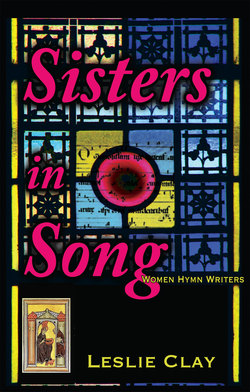Читать книгу Sisters In Song; Women Hymn Writers - Leslie Clay - Страница 21
На сайте Литреса книга снята с продажи.
Frances Jane ‘Fanny’ Crosby
Оглавление1820-1915
“All the Way My Savior Leads Me”
“I Am Thine, O Lord”
Volumes have been written about this distant cousin of Bing Crosby and the most prolific hymn writer of all time. The “Queen of American Hymn Writers” and the “Mother of Congregational Singing in America” was born to poor parents, blinded by an incompetent itinerant “doctor” at six weeks of age, and lost her father to death at one year. Her mother and grandmother grounded her in Protestant principles and helped her memorize the first four books of the Old Testament, the Gospels, Proverbs and most of the Psalms. When she was fifteen, New York opened a state school for the blind and she was fortunate to become a student there. She later became one of its teachers until she was about thirty-three years old. She wrote poetry and, while still a student, recited her poetry for visitors, including presidents and generals. In 1843, she went to Washington DC to prove to government leaders that blind people can be educated. As the first woman to speak to the Senate, she won many senators over with her poetry and personality. It’s remarkable that a writer of so many hymns didn’t begin writing hymns until she was about forty. She submitted her first hymn for publication in 1864, but by the time she died at ninety-five, she had composed more than 8000 hymns. At most, she got two dollars for each hymn, because the copyright was either owned by the publisher or the tune writer. Most hymns were written late at night when she had silence to concentrate. In her second career, she was known for her mission work, mainly in the Bowery district in New York City, funded by the income from her writings. In fact, though she had wealthy friends who were willing to support her, she chose to live in tenement houses, giving away any money not needed for essentials. She considered herself primarily as a social worker. Though she married a fellow blind teacher, she kept the use of her maiden name, something quite out of the mainstream at that time. She was also very independent, travelling alone on the train despite her blindness. She was a compelling speaker and even into her nineties, she was speaking to large crowds. “I am so busy I hardly know my name,” she wrote. When a minister once commented it was too bad she couldn’t see, she responded, “If I had been given a choice at birth, I would have asked to be blind. . . for when I get to Heaven, the first face I will see will be the One who died for me.”
Her poems and hymns, ‘songs in the night’ as she called them, were composed in her mind, as many as twelve at once, then dictated to another. She often wrote her hymns under one of 200 pseudonyms or her married name, Mrs. Alexander Van Alstyne, because she was embarrassed by the overwhelming fame and adulation she received. Among the hymns still sung today are “Praise Him, Praise Him,” “Blessed Assurance,” and “Rescue the Perishing.” Her songs drew on experience more than doctrine and framed the backbone of revivalist and evangelical singing.
When she wrote “All the Way My Savior Leads Me,” she expressed her belief in God’s guidance, especially since she was blind. She always felt her blindness was part of God’s plan. The immediate inspiration for the song came from an event in 1874. Lacking money to pay rent, she prayed about it. That day, a stranger came to her door and gave her ten dollars, the very amount she needed. She later wrote “I have no way of accounting for this except to believe that God, in answer to my prayer, put it into the heart of this good man to bring the money to me. My first thought was, ‘It is so wonderful the way the Lord leads me.’”
She wrote “I Am Thine, O Lord” in 1875 while she was visiting friend, songwriter, and Sunday School superintendent William Doane in his home in Cincinnati. They had been discussing the nearness of God as the sun was setting. Just as in the case of Horace Burr in the story of “Beyond the Sunset,” others present vividly described the beauty of the sunset to her. The subject so impressed her that she wrote the lyrics that night. Later, Doane wrote the music. Doane was Fanny’s main collaborator, and he also wrote the music for her still sung songs “Near the Cross,” “Pass Me Not, O Gentle Savior,” and “To God Be the Glory.”
